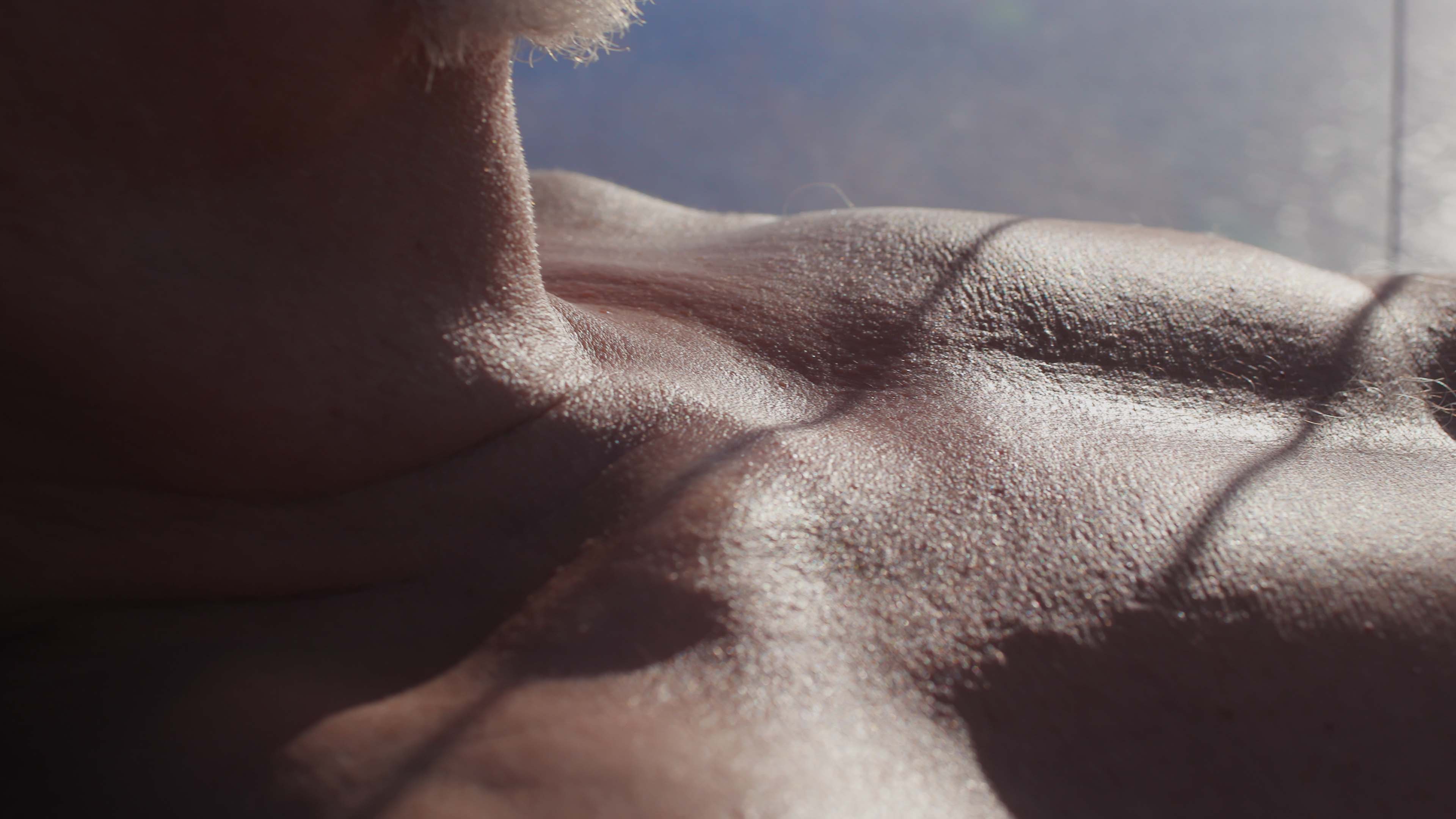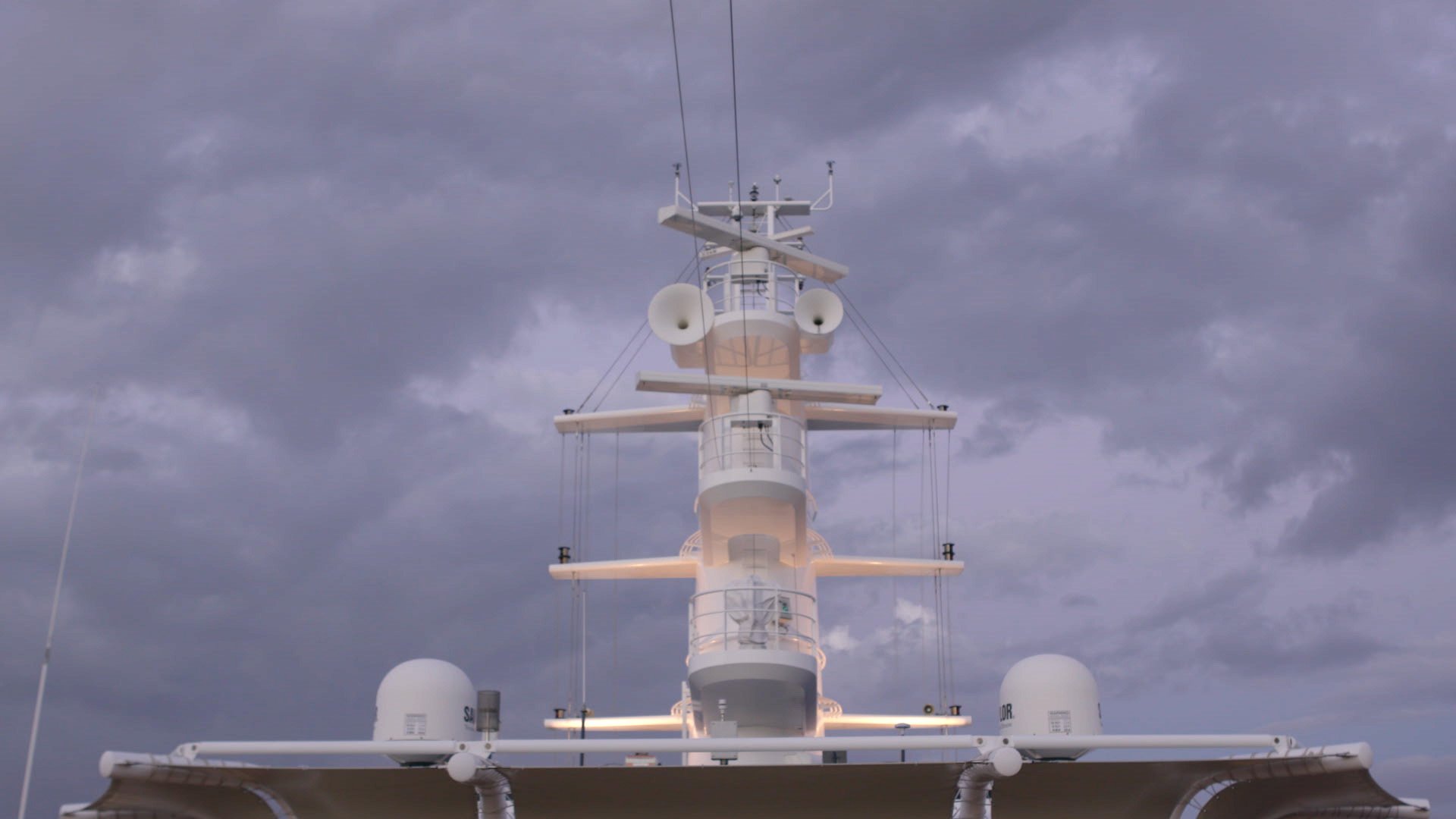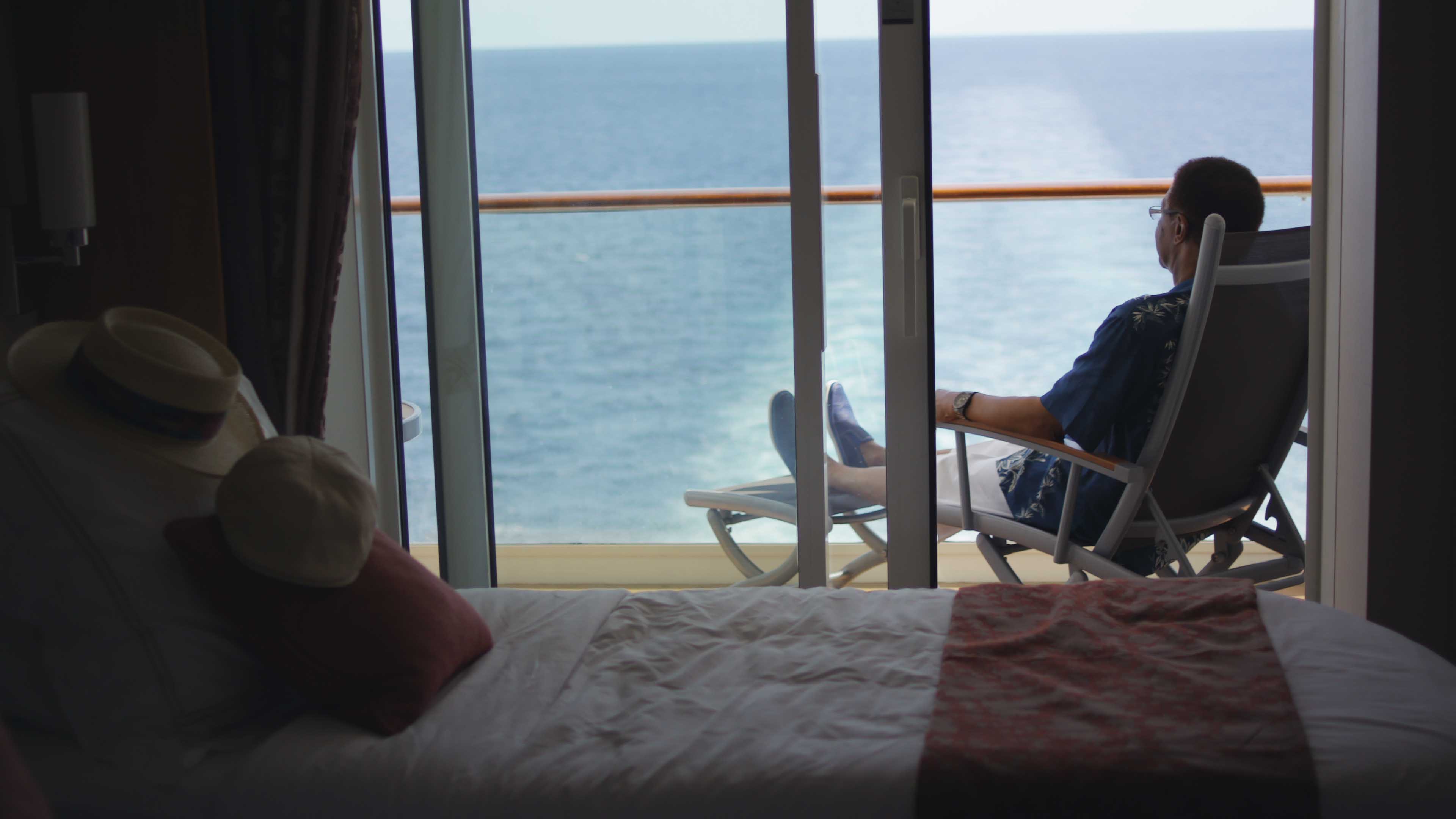Older gay men are fighting ageism in ‘Prime Time’
By Ross Semple

In Rob Crosse’s new film work ‘Prime Time’, a group of older gay men get together to travel on a cruise ship around the Caribbean. The film explores ageism and the pursuit of physical ideals, and leaves the audience questioning what is meant by being in one’s ‘prime’.
Most of my film works up till now have been set among groups of older people, primarily older men – railway enthusiasts, model car racers, hobbyists seeking friendships and affinities in local clubs or like-minded communities, or, in the case of one film, retired people out taking early-morning exercise. I am drawn to the unseen rituals that characterise these various social interactions, and the unspoken codes and signs that bind individuals to these groups. But I have always also been struck by the energy and vitality and self-confidence of the people I have met, and who I have featured in my films. While I like to step back, with my camera, and observe the quirks of human behaviour, I also want to highlight and celebrate that energy and vitality and self-confidence – especially at a time when those qualities are increasingly associated with (and commodified in) a cult of youth.

If this exaggerated focus on youth is an inescapable part of mainstream culture, it is, even more, the case perhaps on the gay scene. For a couple of years now, I have been following and befriending an American network of older gay men, known as ‘Prime Timers’. It’s a largely Stateside phenomenon to date, in which members of the community get together on a regular basis to go on group excursions together. One of these, a Caribbean cruise, is the subject of my latest film, ‘Prime Time’.
While making the film, once again I found myself in the company of people who had time on their hands, but who also, in their latter years, clearly exhibited a real zest for life. As a younger gay man, alert to the pressures exerted by a physical ideal that people are meant to find desirable or aspire to possess, I wanted to show a different aspect by portraying the marks and contours of older male bodies in a sensual, affirmative way. I was in the presence of people who were totally comfortable in their own skin, and I wanted to convey that sense of self-possession and ease, and its attractiveness to me.

The film got me thinking more generally about the question of how and when we can properly say we are in the prime of our lives. You can be young and fit, buff and gym-toned, absolutely at your physical peak, but do your best years still lie in front of you, when your physical powers may be starting to diminish, but the wider experience you have accumulated more than compensates? I reflected on this through the mirror of the cruise ship itself: a little utopia floating on the ocean, in which time seems to both fill out, and stand still. I tried to capture that in different ways: highlighting the unchanging vista of the horizon or the unchanging routines onboard: eating, drinking, socialising, sleeping; each day much like the rest. Although ‘Prime Time’ can be summed up in a snappy one-liner – ‘it’s a film about cruising on a cruise ship.’ – it’s also my attempt to grapple with something more universal, even existential: how we both measure and deny the passing of time.
Words by Rob Crosse
‘Prime Time’ currently shows in Rob Crosse’s solo exhibition of the same name at Grundy Art Gallery, Blackpool, until 3 June. His film was commissioned by Film and Video Umbrella, with Grundy Art Gallery. Supported by Arts Council England.
